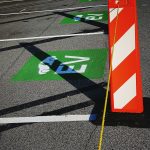Towing a caravan can be a wonderful experience, offering you the freedom to travel and explore at your own pace. But before you hitch up your caravan and hit the open road, it’s important to know the legal requirements in the UK. Understanding what you need in terms of licences, weight restrictions, insurance cover, and safety is essential. Whether you’re a seasoned pro or this is your first time towing a caravan, this article is here to guide you through the key legal aspects you should know.
Licence requirements for towing a caravan
If you plan to tow a caravan, your driving licence is a key factor that will determine what you can and cannot do. The type of licence you hold can vary depending on when you passed your driving test.
This might interest you : What are the best practices for storing a convertible during the UK’s rainy season?
For those who passed their driving test before 1 January 1997, your licence will usually allow you to drive a vehicle and trailer combination up to a maximum authorised mass (MAM) of 8,250kg. For those who passed their test after this date, you’re limited to driving vehicles up to 3,500kg MAM towing a trailer up to 750kg MAM. However, you may drive a vehicle and trailer combination over this limit if you have passed an additional driving test to gain the B+E entitlement on your licence.
This may sound complex, but it’s important to take the time to understand what your licence allows you to do. It’s worth noting that if you’re caught towing a caravan that exceeds your licence allowance, you could be prosecuted and your insurance may not cover you.
Topic to read : How to secure the best extended warranty for an electric vehicle in the UK?
Caravan towing weight restrictions
Weight restrictions play a vital role in ensuring both your safety and the safety of other road users. Towing a caravan that’s too heavy for your vehicle can lead to severe control and stability problems, which could cause an accident.
The MAM of your caravan should not exceed 85% of the unladen weight of your towing vehicle for beginners, this is known as the ‘85% rule’. Although this isn’t enshrined in law, it’s widely recommended by towing and motoring organisations. The absolute maximum limit is that your caravan’s MAM must not exceed the kerb weight of your vehicle, unless the vehicle manufacturer specifies otherwise.
To determine your caravan’s MAM, check the vehicle’s handbook. It’s also wise to visit a public weighbridge to ensure your loaded caravan doesn’t exceed the recommended weight. Remember, overloading can lead to fines and penalty points on your driving licence.
Insurance and towing a caravan
When it comes to insurance, it’s vital to ensure you have the correct cover for towing a caravan. Typically, your car insurance would cover liability for third party accidents while towing your caravan, but not necessarily damage to the caravan itself.
As a result, many people choose to take out specific caravan insurance. This can cover you for accidental damage, theft, and even contents cover for items inside the caravan. It’s important to check with your insurer to understand what your policy covers.
Remember, if you’re involved in an accident and you’re found to be towing a caravan that’s too heavy or you don’t have the appropriate licence, your insurer may refuse to pay out.
Caravan towing and road safety
Towing a caravan on UK roads involves more than just driving; you have to consider safety aspects as well. There are several rules for towing a caravan concerning speed limits, mirrors, and braking systems.
When towing a caravan, you must not exceed 50mph on single carriageways and 60mph on dual carriageways and motorways. There is a blanket 30mph limit in built-up areas unless signs indicate otherwise. Exceeding these speed limits could result in penalty points and a fine.
As for mirrors, if your caravan is wider than your car, you’re legally required to fit extension mirrors. These give you a clear view of both the road behind and the full width of your caravan.
For caravans over 750kg MAM, they must have a working, independent braking system. This is crucial for your safety and the safety of others on the road.
The practical test for towing a caravan
If you passed your test after 1 January 1997 and wish to tow larger caravans, you’ll need to take an additional test, commonly known as the B+E test. The B+E test involves a practical driving test aimed at demonstrating competence in manoeuvring and controlling a vehicle with a large trailer or caravan.
The test includes an ‘off-road’ reverse manoeuvre, a controlled stop, an ‘uncouple and recouple’ exercise, and approximately 50 minutes of road driving. This can be a daunting prospect for some, but with proper instruction and practice, it’s a achievable task.
In conclusion, towing a caravan involves a range of legal requirements that you must adhere to. Knowledge of these requirements is not only essential for staying on the right side of the law, but also for ensuring your safety and the safety of other road users. Happy caravan towing!
Caravan Towing Equipment
Apart from your vehicle and caravan, there are several other pieces of equipment that are compulsory for safely towing a caravan. The first one is a sturdy and reliable tow bar. The tow bar must be ‘type approved’ – this means it meets EU regulations and is designed for your car.
Type-approved tow bars have a label with an approval number and details of the vehicles it can be fitted to. If your car was first used before 1 August 1998, your tow bar doesn’t need to be type-approved. It’s also worth noting that a tow bar that’s not properly installed can damage your car and make it unsafe.
Next in line are towing mirrors. If the caravan you’re towing is wider than the rear of your car, you will need to use extension mirrors to ensure visibility behind the caravan. These mirrors have to provide an adequate view of the road behind you and both sides of the caravan.
If you cannot see clearly, you will struggle to assess the approaching speed of following vehicles and could potentially cause accidents. Breaking this rule makes you liable to be prosecuted by the police, and any insurance claim as a result of an accident may be affected.
Breakdown Cover While Towing a Caravan
An often-overlooked aspect of towing a caravan is having proper breakdown cover. While your car insurance might cover your vehicle, it doesn’t necessarily cover your caravan, particularly if you’re at fault in an accident. For peace of mind during your journey, it’s advisable to have a breakdown cover that includes your caravan.
Breakdown cover for your caravan is important because standard vehicle breakdown cover won’t always extend to your caravan. You’ll need to ensure you have a policy that covers caravans and trailers, and check that it covers you for all eventualities, including punctures on your caravan, as well as incidents that might occur while you’re unhitched.
Remember to recheck your car insurance policy to confirm what it covers when towing a caravan. Some insurance policies may provide third-party cover for trailer or caravan accidents, but they may not cover damage to the caravan itself.
Conclusion
In conclusion, towing a caravan is a task that requires careful preparation and adherence to legal requirements. From understanding the capacity of your driving licence, observing weight restrictions, securing the right insurance cover, to using appropriate towing equipment and ensuring road safety, every step is crucial.
Remember, failure to comply with these regulations not only puts you at risk of legal repercussions, but also jeopardises your safety and that of others on the road. As a caravan owner, the onus is on you to ensure everything is in order before you set off on your journey.
By keeping these points in mind and making sure you’re fully prepared, you can look forward to a stress-free journey with your caravan. Here’s to safe and enjoyable caravan towing on UK roads!











